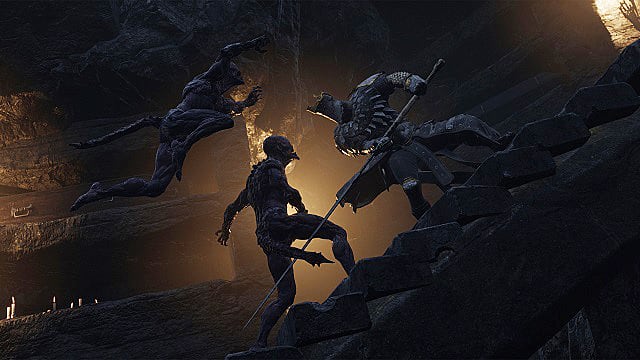

Streamlined, slick, soundly designed, Mortal Shell is an enjoyable take on the Souls-like genre, even if it is a bit short. It’s by no means perfect, nor does it have the volume of content or systems found in the larger-budget entries, but I found myself absorbed by the mysteries it leaves unanswered and some of the worlds on offer.
Both its greatest strengths and weaknesses come from its reliance on the template laid down by FromSoftware. Some of the ways Mortal Shell iterates on that formula are to its detriment as well. Many of its characters lack any kind of robust backstory, it’s various environments act only as arenas, and some of the enemy mechanics are more frustrating than they are elegant.
That said, the combat, shell system, and boss fights make up for some of Mortal Shell’s weaker elements. There are no extremes here: the “bad” doesn’t come close to dealbreaker-status, and the good is plenty enjoyable without shattering expectations. It’s a game made with love that has some rough edges, but it will scratch every Souls-like itch you have.
Mortal Shell Review: Stepping Out of the Shadows
Mortal Shell’s shell system, a kind of static, class-based mechanic, is an ingenious way to avoid balancing a complex RPG while still offering a satisfactory progression experience with enough depth to last dozens of hours.
There are no “stats” in the traditional sense. Each of the five shells has set health, defense, and stamina values that, even in NG+, can’t be altered. Instead, you upgrade each shell with a set number of upgrades that grant passive and active abilities keyed to the theme of the shell itself.
Tiel, the Acolyte, the game's thief-looking shell, has a large stamina bar, but low defense, and their skills are built around speed, poison, and damage mitigation. The heavily armored cleric, on the other hand, has an enormous health bar but minimal stamina. Its upgrades focus on tanking hits and dealing massive damage.
With each of the four shells geared toward a particular playstyle, and all four of the equipable weapons eating your stamina for dinner, every action takes additional forethought. Strategy is paramount, no matter how you want to tackle the game.
Resource management also plays a vital role in how you progress, as upgrade materials are more limited than in other similar games, and farming them before the end-game is almost impossible. You’ll want to decide which weapon you want to play early and stick with it.
Leveling your shell is expensive, as well. There are two experience types in Mortal Shell — Tar and Glimpses — and you’ll need a lot of both to unlock even a few of the "cheaper" abilities. Enemies don’t drop much of either, bosses included. You’ll be reliant on consumable items for them. By game’s end, you’ll probably have enough to fully upgrade a single shell and most of one weapon.
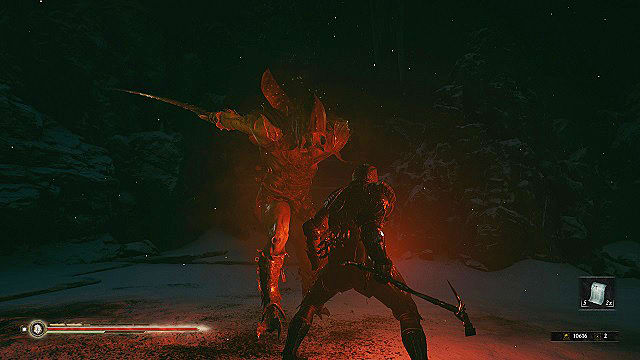
This design philosophy of Mortal Shell favors mastery and specialization over an all or nothing approach. In a game like Dark Souls, by mid-game, you can use almost anything with some degree of efficacy, though favoring a single stat over others usually leads to better damage, for example. In Mortal Shell, unless you want to handicap yourself severely, you must specialize and “git gud” with a single kit.
It’s a satisfying way to play because when you reach the final boss, you know how to approach every attack and deal with every mechanic. There will be no enemy in the game you cannot handily defeat with enough patience and proper use of your shell’s abilities. The reward structure here isn’t so much the weapons or the experience, but it is instead the knowledge that nothing truly threatens you.
That sense of mastery extends to the boss fights, as like some of the better mainline Dark Souls bosses, once you know how they work, you can bully them into submission again and again. Even in NG+, where everything hits harder and has more HP, it won’t take you long to completely dominate whichever boss you encounter.
There are plenty of enemies in Mortal Shell that I don’t like for their attack patterns or no-frame startups, but all of the bosses in the game made me feel powerful for defeating them.
Understand The Lesser
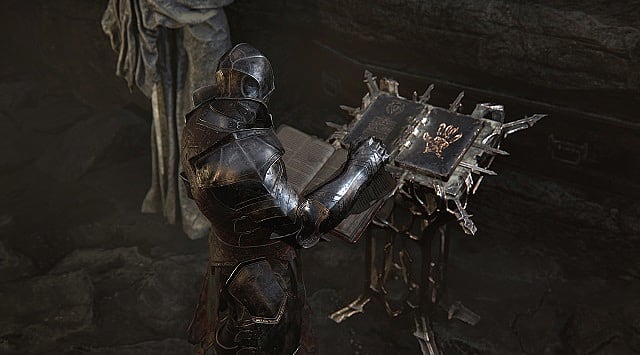
One of the defining features of any of the Souls games is the mystery and majesty of its world. The lore and story of Lordran are almost as important as the quality of Dark Souls' bosses and the enjoyment of the game's combat. It’s easy to find yourself drowning in FromSoftware’s universes, buried beneath a mountain of ancient secrets and forbidden knowledge.
Mortal Shell's world lacks much of that depth and mystery. The game is more than happy to tell you exactly what’s going on, what that strange thing in the distance means, and what you should think about certain situations.
The game's environmental storytelling is also less than stellar. A single location in Lordran tells the story of its inhabitants, its history, and enlarges the world in some key way. None of the areas in Mortal Shell do so with the same aplomb. The various levels serve only to explore new visual designs and to change how each encounter runs.
Not that area aesthetics aren’t appealing, because they are, but I would have preferred there to be more interconnection between the various locales to show that the world is more than a collection of levels.
The level design is also based almost entirely around hallways and single routes of progress. There are no shortcuts, no areas to double back to, and enemy density is inconsistent.
The various areas could play home to new enemy designs, but variety is an issue as well. Most boil down to “thing with sword/mace,” and even when you do get something more interesting, it seems to come out of nowhere and only tangentially fits the environment.
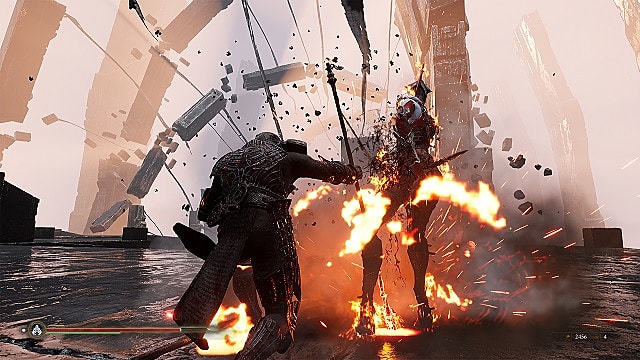
It’s a shame, too. I loved almost all of the boss fights in Mortal Shell, and while their arenas played some roll in the story, where they came from always eluded me. There was only one real exception to this rule, and it was probably my favorite fight out of all of them. Surrounded by ice and having a name based around the game’s dark religious themes, I understood, to some degree, who he was and what he represented.
The same could not be said for some of the other important characters you meet. One of them seems to serve a single gameplay purpose, the other is a quest endpoint, and a third is a bonfire stand-in whose only other job is delivering way too much exposition.
Who they are or what they want in the world is either left completely vague or is entirely predictable, and in none of their cases do I feel any emotional attachment to them. By the end of Dark Souls, I am both angry with and hold pity for the shell of man Gwyn has become. Mortal Shell’s final boss, on the other hand? Well, you can discover for yourself.
Mortal Shell Review — The Bottom Line
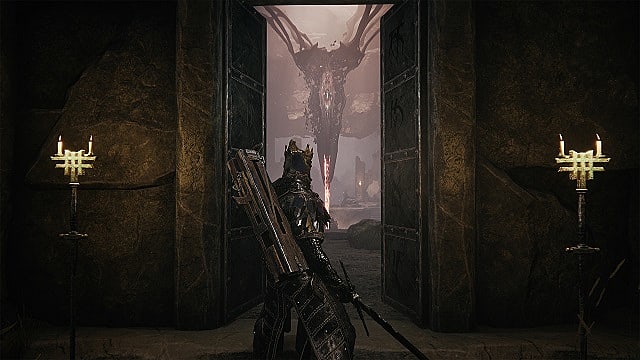
Pros
- Strong combat and enjoyable boss fights
- Elegant, streamlined progression system
- A mysterious world that begs for expansion
Cons
- Flat, uninteresting narrative
- Middling level design
- Lacking enemy variety and uninspired designs
Where it’s map design, enemy variety, and narrative falter, Mortal Shell makes up for it with satisfying combat and streamlined progression systems. It also offers plenty of character in its boss fights and enough visual style and solid aesthetic choices to build a believable, if somewhat rote, world.
There is some missed potential, but the game has a lot of heart, and if it sees any additional content in the future, there’s a solid foundation to build on. A few more shells, a couple of new areas and bosses, and some adjustment to the level design to add shortcuts and interconnectedness, and Mortal Shell would become something exceptional.
As it is, this is an impressive first outing by an otherwise untested team. Though it’s on the smaller side and unfortunately leans into some of its rougher edges, there’s nothing here that acts as a deal-breaker.
Souls veterans will find a tasty snack lasting about 15-20 hours, and newcomers will be challenged in ways they’re not ready for. To me, that’s all a solid Souls-like can hope to offer: a game that takes time to learn, but once mastered, provides both power fantasy and the pure elation of victory over a dying world.
[Note: A copy of Mortal Shell was provided by Cold Symmetry for the purposes of this review.]
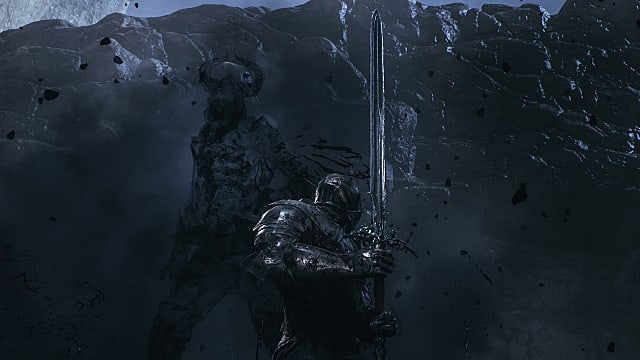
0 comments:
Post a Comment